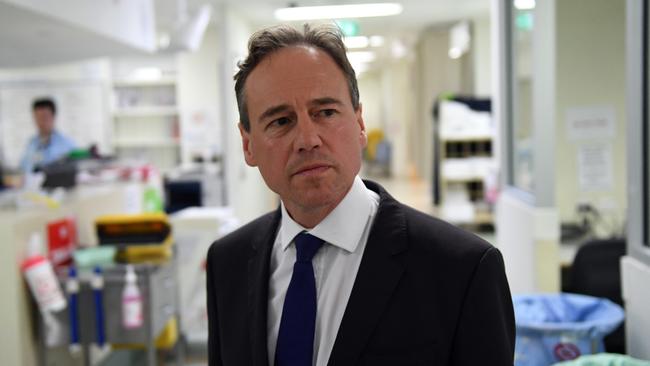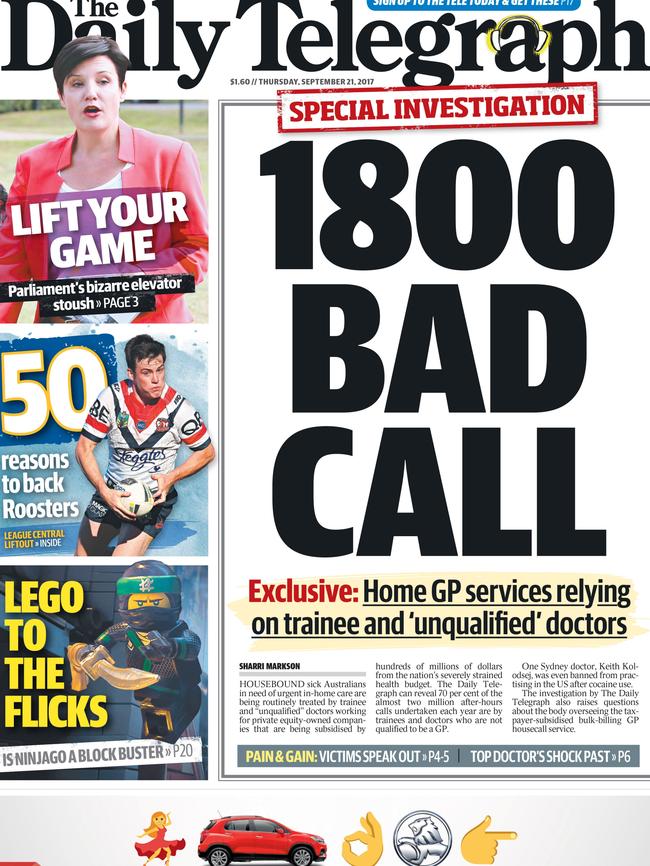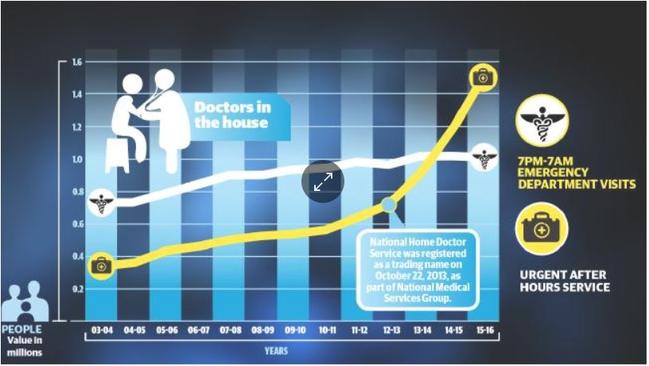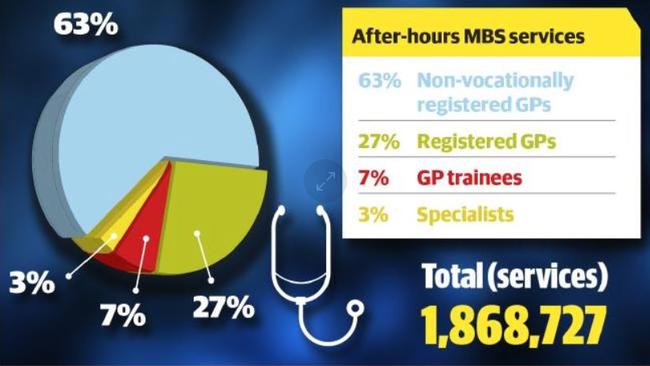Massive overhaul set for after-hours doctor house call industry costing $250m a year
HEALTH Minister Greg Hunt will today announce a massive overhaul of the after-hours doctor house call industry that is costing taxpayers a quarter of a billion dollars each year and lining the pockets of private equity firms.

NSW
Don't miss out on the headlines from NSW. Followed categories will be added to My News.
JUNIOR doctors will be banned from earning the top bulk-billing rate for after-hours home calls, and Medicare will get a funding boost in today’s Budget update.
Health Minister Greg Hunt will announce a massive overhaul of the after-hours doctor house call industry that is costing taxpayers a quarter of a billion dollars each year and lining the pockets of private equity firms.
It comes after an investigation by The Daily Telegraph revealed the system was being exploited by money-hungry companies.
Requests for an after-hours GP visit will now be assessed first to see whether the matter is truly urgent and, in another key change, people will no longer be able to pre-book before 6pm for an after-hours visit.
But the change that will deliver the biggest saving is cutting off trainee doctors from being paid the top Medicare rate for urgent home-call visits.

GPs and GP registrars will continue to be able to use the current urgent after-hours Medicare rebate of $129.80 per visit, in recognition of their training and expertise.
Less qualified doctors in metropolitan areas will, from March 1 next year, receive a lower fee of $100, which will drop again to $90 from January 1, 2019. There will be no changes for the service in rural and regional areas.
Mr Hunt said the rebate structure will now reflect the qualifications of the doctor providing the urgent after-hours care.
“We are taking steps to ensure that patients needing an after-hours doctor receive the best quality care under Medicare,” he said.
“The changes are in response to concerns raised by GPs that some doctors who are not fully qualified are providing urgent after-hours care, and that some treatments being claimed as urgent are not genuinely urgent.”

The use of urgent after-hours visits has exploded by 157 per cent in the past five years, with private equity firms cashing in on the fully bulk-billed service.
“There is no clinical explanation for the large increase but rather the growth has been driven by a corporate model of largely advertising on the basis of convenience, rather than medical need,” Mr Hunt said.
MORE NEWS
HOME GP SERVICE USING ‘UNQUALIFIED DOCTORS’
AFTER HOURS DOCTOR SERVICE INVESTIGATED
The savings, while understood to be substantial, will be reinvested into Medicare, removing Labor’s ability to run another “Mediscare” campaign against the Turnbull government.
It is understood that, in total, Medicare funding will be increased in the Mid-Year Economic and Fiscal Outlook today.

GP Deputising Association chair, Nathan Pinskier said the changes were important to ensure continuity of healthcare.
“Doctor on demand sounds appealing but it means you’re seeing itinerant, one-off doctors and getting fragmented treatment, which can impact on your long-term health,” he said.
Are our doctors reaching breaking point?
The changes were based on recommendations from the Medicare Benefits Schedule Review Taskforce and are also supported by the Australian Medical Association and the Royal Australian College of GPs.
The Daily Telegraph has exposed serious problems in the after-hours health care industry, including misdiagnosis as a result of private equity firms using a majority of junior, unqualified doctors to treat patients.


